This is python code to generate a simple multi-ports MLP model-two inputs,two outputs.Using HybridBlock and erport functions make it possible to use in C++.
Net Graph:
from mxnet import nd
from mxnet.gluon import nn
import mxnet as mx
class HybridNet(nn.HybridBlock):
def __init__(self, **kwargs):
super(HybridNet, self).__init__(**kwargs)
with self.name_scope():
self.dense0 = nn.Dense(3)
self.dense1 = nn.Dense(3)
self.dense2 = nn.Dense(6)
def hybrid_forward(self, F,x,y):
result1 = F.relu(self.dense0(x))+F.relu(self.dense1(y))
result2 = F.relu(self.dense2(result1))
return [result1,result2]
net = HybridNet()
net.initialize()
net.hybridize()
x = nd.random.normal(shape=(4,3))
y = nd.random.normal(shape=(4,5))
res=net(x,y)
print "output1:",res[0]
print "output2:",res[1]
net.export('model')
We can re-import the model into mxnet to check weather the exporting is correct. You can see the two results(from gluon and mxnet) are the same.
from collections import namedtuple
sym = mx.symbol.load('model-symbol.json')
mod=mx.mod.Module(symbol=sym,data_names=['data0','data1'])
mod.bind(data_shapes=[('data0',(1,3)),('data1',(1,5))])
mod.load_params('model-0000.params')
Batch=namedtuple('Batch',['data'])
mod.forward(Batch(data=[x,y]), is_train=False)
print mod.get_outputs()
See what outputs look like
sym.list_outputs()
['hybridnet0__plus0_output', 'hybridnet0_relu2_output']
Here is the first part of the C++ code and it raise error.I make sure the num_input_nodes and num_output_nodes both are two.And using MXPredCreatePartialOut to custom my multi-tasks output.
#include <mxnet/c_predict_api.h>
#include <iostream>
#include <fstream>
#include <string>
#include <vector>
#include <assert.h>
// Read file to buffer
class BufferFile {
public:
std::string file_path_;
int length_;
char* buffer_;
explicit BufferFile(std::string file_path)
:file_path_(file_path) {
std::ifstream ifs(file_path.c_str(), std::ios::in | std::ios::binary);
if (!ifs) {
std::cerr << "Can't open the file. Please check " << file_path << ". \n";
length_ = 0;
buffer_ = NULL;
return;
}
ifs.seekg(0, std::ios::end);
length_ = ifs.tellg();
ifs.seekg(0, std::ios::beg);
std::cout << file_path.c_str() << " ... " << length_ << " bytes\n";
buffer_ = new char[sizeof(char) * length_];
ifs.read(buffer_, length_);
ifs.close();
}
int GetLength() {
return length_;
}
char* GetBuffer() {
return buffer_;
}
~BufferFile() {
if (buffer_) {
delete[] buffer_;
buffer_ = NULL;
}
}
};
int main(int argc, char* argv[]) {
// Models path for your model, you have to modify it
std::string json_file = "./model-symbol.json";
std::string param_file = "./model-0000.params";
BufferFile json_data(json_file);
BufferFile param_data(param_file);
// Parameters
int dev_type = 1; // 1: cpu, 2: gpu
int dev_id = 1; // arbitrary.
mx_uint num_input_nodes = 2;
mx_uint num_output_nodes = 2;
const char* input_key[2] = { "data0" , "data1" };
const char** input_keys = input_key;
const char* output_key[2] = { "hybridnet0__plus0" , "hybridnet0_relu2" };
const char** output_keys = output_key;
// input-dims
int data0_len = 3;
int data1_len = 5;
const mx_uint input_shape_indptr[4] = { 0,2,2,4 };
const mx_uint input_shape_data[4] = {1,static_cast<mx_uint>(data0_len),1,static_cast<mx_uint>(data1_len) };
PredictorHandle pred_hnd = 0;
if (json_data.GetLength() == 0 || param_data.GetLength() == 0)
return -1;
// Create Predictor
assert(0 == MXPredCreatePartialOut(
(const char*)json_data.GetBuffer(),
(const char*)param_data.GetBuffer(),
static_cast<size_t>(param_data.GetLength()),
dev_type,
dev_id,
num_input_nodes,
input_keys,
input_shape_indptr,
input_shape_data,
num_output_nodes,
output_keys,
&pred_hnd)); //ERROR HERE
assert(pred_hnd);
return 0;
}



